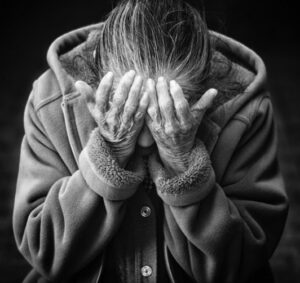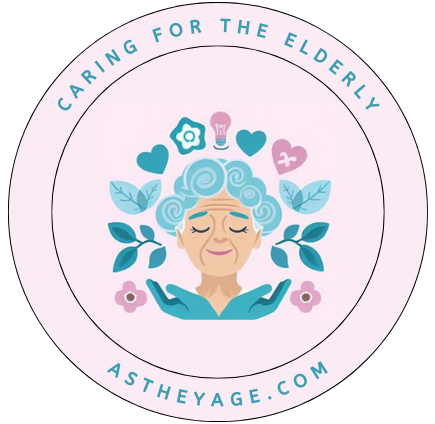
Growing up, I remember hearing comments about members of our elderly community regarding their forgetfulness. Some of these comments were “They going senile”; “They got old-timers disease”; “They getting forgetful”; or “They are aging”. As an adult, I learned that the correct term for this condition is dementia. Shortly after the pandemic, my uncle was diagnosed with dementia. Understanding dementia symptoms would have aided in getting assistance for my uncle sooner.
Understanding Dementia
The term Dementia is used to describe the loss of memory, language, problem-solving skills, and other thinking abilities that causes the inability to function in daily life activities. Alzheimer’s is one of the most common types of Dementia. (Alzheimer’s Association). Simply put, dementia is used to describe symptoms caused by changes in the brain that cause deterioration over time in thinking skills, and cognitive abilities; that interrupt daily life and independent regular day-to-day activities.
What Causes Dementia?
Contrary to widely held belief, Dementia does not only affect the elderly, but it can also affect young people as well. The January 2023 publication of the Journal of Alzheimer’s Disease included a case study of a 19-year-old from China who gradually lost memory within two years (Journal of Alzheimer’s Disease Case Study). The following are a few conditions that may trigger the beginning of dementia:
- Severe brain trauma or injury

- Depression
- Alcohol Abuse
- Parkinson’s Disease
- Type 2 Diabetes
- Long Term High Blood Pressure
- Infections such as syphilis
- Thyroid problems
- Vitamin deficiencies
- Inherited, (passed on in families).
- Alzheimer’s Disease (Aging)
What Are Some Common Signs Of Dementia?
As a young adult, I traveled to Dominica to visit my family, my grandfather was so excited that he kept repeating himself…. “Hello, you!” I found it very peculiar so I asked my cousins about it, they informed me that he was “getting forgetful and sometimes he would leave the house, on foot, to go to the store to get some sugar, only to return several hours later with nothing”, as the years progressed, he could not recognize his wife laying in the bed next to him. He would ask “Who is this person and why she in my bed”. When my uncle Augustus passed away, my grandfather was adamant “Ago didn’t die it was Ago, son”. Below are a few common signs of Dementia:
 Memory Loss (forgetting things)
Memory Loss (forgetting things)- Difficulty concentrating
- Disorientation or confusion about dates, times, and places
- Easily distracted.
- Misplacing things
We sometimes misplace our keys or get too busy in our daily lives, and we sometimes get confused or distracted now and then; however, for people with dementia, these symptoms happen on a daily basis.
Recognizing There Is A Problem.
In November 2019, we started noticing some of these symptoms with my uncle. He was always quirky, however, he started being quirkier than usual. We live in separate houses on our family property. A few months before he lost the keys to his home, he changed the locks, only to misplace the keys again. Instead of replacing the keys, he left the door unlocked and placed a block in front of it to keep the door closed when he left the house. One day there was a burning smell in the yard, upon my investigation, the smell was coming from my uncle’s house. My uncle had left his house with a pot of rice boiling; the entire pot of rice was black. I simply turned off the stove, and we did not see my uncle until the next day. When we asked him about it, he just said that he forgot. We never thought that our uncle had memory issues.
In November 2019, my dad got a call from the police department letting us know that my uncle was in the hospital and needed to be picked up. Apparently, someone called 911 because they saw him scaling their fence. When we asked him what happened, he said that he was taking a shortcut home. When we asked him where home was, he said: “Roseau” (The capital of Dominica). My family is originally from Dominica an island in the Caribbean. My uncle grew up in the capital of Dominica, he lived by the bayside and frequently jumped the fence of a cemetery as a shortcut to get home. Knowing this, we realized something was wrong with him mentally.
Although the symptoms are obvious and persistent, in order to get assistance with caring for loved ones with dementia, it must be diagnosed by a doctor. We took him to a physician, that gave us a referral for a neurologist, and after running several tests, he was diagnosed with Dementia due a to long-term infection. Although the neurologist suggested that my uncle might improve after treatment, the effects of the infection were irreversible.
What Are The Types Of Dementia?
As stated before, Dementia is basically a term used to describe memory loss and other mental abilities that interrupt daily life and independent regular day-to-day activities of the affected. It is caused by changes in the brain which increase in severity over time. Although some instances of dementia can be treated and the affected can return to normal functions, others are irreversible. There are over 400 types of dementia, however, the following are the most common:
Alzheimer’s Disease – Caused by a buildup of proteins that affect how the brain cells transfer messages. This may lead to wandering or getting lost, difficulty recognizing family and friends, acting on impulses, and an inability to effectively communicate.
Vascular Dementia – is caused by problems in the blood supply to the brain due to diseased blood vessels.
Frontotemporal Dementia – a group of dementia that mainly affect the frontal and temporal lobes of the brain.
Lewy Body Dementia –normally mistaken for Alzheimer’s Disease, it includes two subcategories of dementia: Lewy Body and Parkinson’s disease dementia. This form of dementia causes cognitive decline, mobility issues, sleeping disorders, and visual hallucinations.
Mixed Dementia – simply put is a person that has been diagnosed with two or more types of dementia.
Knowing Is Half The Battle
Had we paid more attention to our uncle and the signs that there was an issue, we could have caught it early and assisted him in getting the health care needed, and he could have continued to live a normal life. Today, my uncle still resides in his home and receives 24/7 in-home care services through the local government.
Now it is your turn, I invite you to share your comments, suggestions, questions, or experiences.
